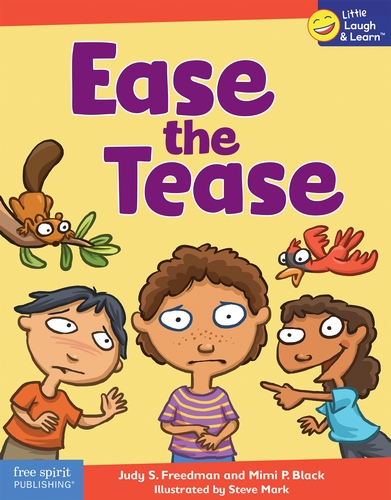Related Products
For Professionals
- Amplification
- Assessment of Student Skills, Challenges, Needs
- Early Childhood: Infants, Toddlers, Preschool
- Hearing Loss – Identification, Impact and Next Steps
- IDEA Law Summary Information
- Language and Speech Development Issues
- Legal Issues in Serving Children with Hearing Loss
- Listening (Auditory Skills) Development
- Planning to Meet Student Needs
- Self-Advocacy Skills for Students with Hearing Loss
- Self-Concept: How the Child with Hearing Loss Sees Himself
- Social Skills
- Speech Perception & Learning
Related Teacher Tools Takeout Items
Preparing Students for Social Unpredictability

We all want students to be critical thinkers, problem solvers and decision-makers across academic content areas as well as social and emotional contexts1.
Smooth social interactions help not only with language learning, but also self-esteem and a feeling of belonging. Social stories and role-playing scenarios are commonly used and can be a great way to target specific social issues but they do not prepare a student for scenarios we can’t predict.
If you are an educator or provider for a child who has hearing loss, you know language learning and communication skills can be affected due to reduced access to incidental language. If you are a Teacher of the Deaf/Hard of Hearing, you are most likely familiar with the Expanded Core Curriculum (ECC) for Children with Hearing loss.
The ECC2 defines the following attributes as those needed for a child to be socially and emotionally competent:

- Good communication skills
- Capacity to think independently
- Capacity for self-direction and self-control
- Understanding the feelings, motivations, and needs of oneself and others
- Flexibility in appropriately adapting to the needs of each particular situation (which includes being able to take multiple perspectives in any situation)
- Ability to rely on and be relied upon
- Understanding and appreciating one’s own culture and its values as well the cultures and cultural values of others
- Using skilled behaviors to maintain healthy relationships with others and to obtain socially approved goals
As educators, we know that goals should be functional and person-centered. Since we have (or should have) moved to student-led IEPs, students should have input on their needs and goals in partnership with their parents and educators. This should result in functional improvements that are important to both the student and their parents, optimizing their potential to participate in meaningful activities, and have a voice in the outcomes achieved3.
Once goals are established, we must work towards acquiring the skills needed to work and collaborate with others. We can proactively provide instruction, visual supports, and meaningful learning experiences to build their skills4.
Social stories and role-playing scenarios are commonly used and can be a great way to target specific issues (such as nose-picking, turn-taking, greetings, etc.). They do not prepare a student for scenarios we can’t predict.
So how can we help prepare them for the unpredictability that is life?

By asking questions that help them utilize critical thinking and emotional regulation1.
- “What is the problem?”
- “What are some possible solutions?”
- “Which of these choices might be the most effective?”
You can practice answering these questions by using common social scenarios or challenges the student has faced in the past. The goal is for them to develop the ability to transfer these skills when they are faced with a difficult situation.
Provide common scenarios and challenges that our students face (or likely have already faced):
- Questions about their hearing loss (their device, speech, etc.)
- Communication Breakdown situations
- Discomfort or refusal to use technology (devices, captioning, HAT systems, etc.)
- Lack of accommodations (or someone refusing to provide them)
This list could go on, especially for those who have challenges other than their hearing loss.
In later sessions, you can follow with “Did the strategy work?” “How do you know it worked?”. We can explicitly teach these skills to students in a 1:1 setting with a person they are typically comfortable with. Targeting social-emotional skills is vital to student success in their educational setting as well as for their overall well-being.
References
- Cohen Richard K 2023 [Power Point Slide] The Metacognitive Student: How to Teach Academic, Social, and Emotional Intelligence in Every Content Area
- Greenberg, M. T., & Kusché, C. A. (1993). Promoting social and emotional development in deaf children: The PATHS project.University of Washington Press.
- Manci, Lisa MS CCC SLP (2021) Audiology Information Series: Childhood Hearing Loss (asha.org) Person-Centered Focus on Function: Hearing Loss in the School-Aged Child (asha.org)
- Giroux, Lindsay N. Ed. 2022 [Power Point Slide] Show Me What to Do: Using Visuals to Teach Social Skills and Emotional Literacy in Early Childhood.
Author: Jessica Lampert, MS Deaf Education, Assistant Speech Language Pathologist.
Click here to download this article.



